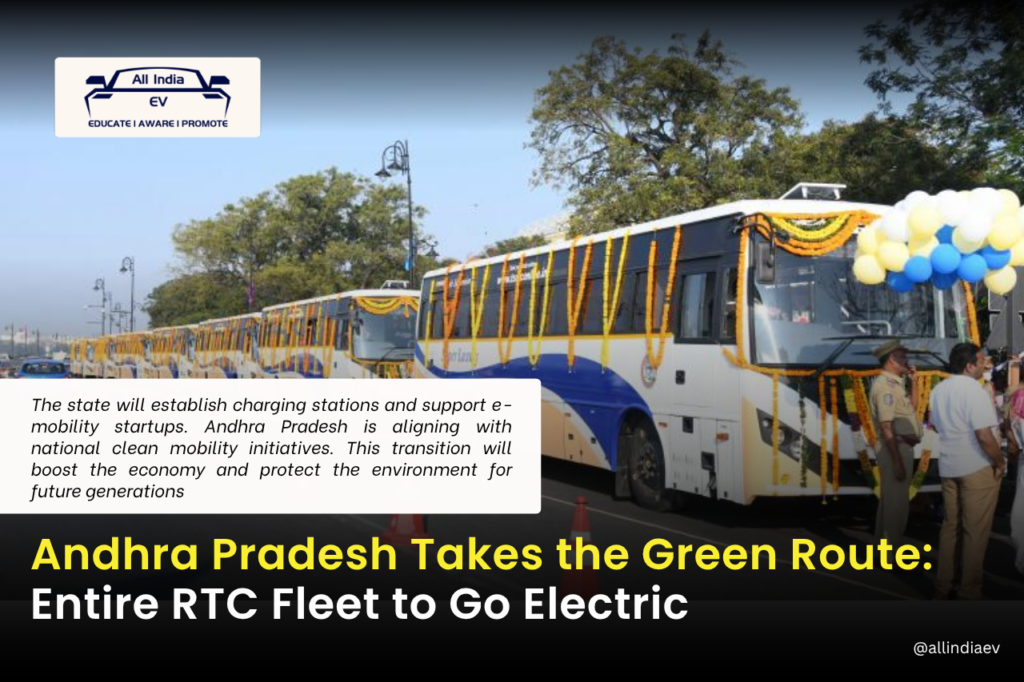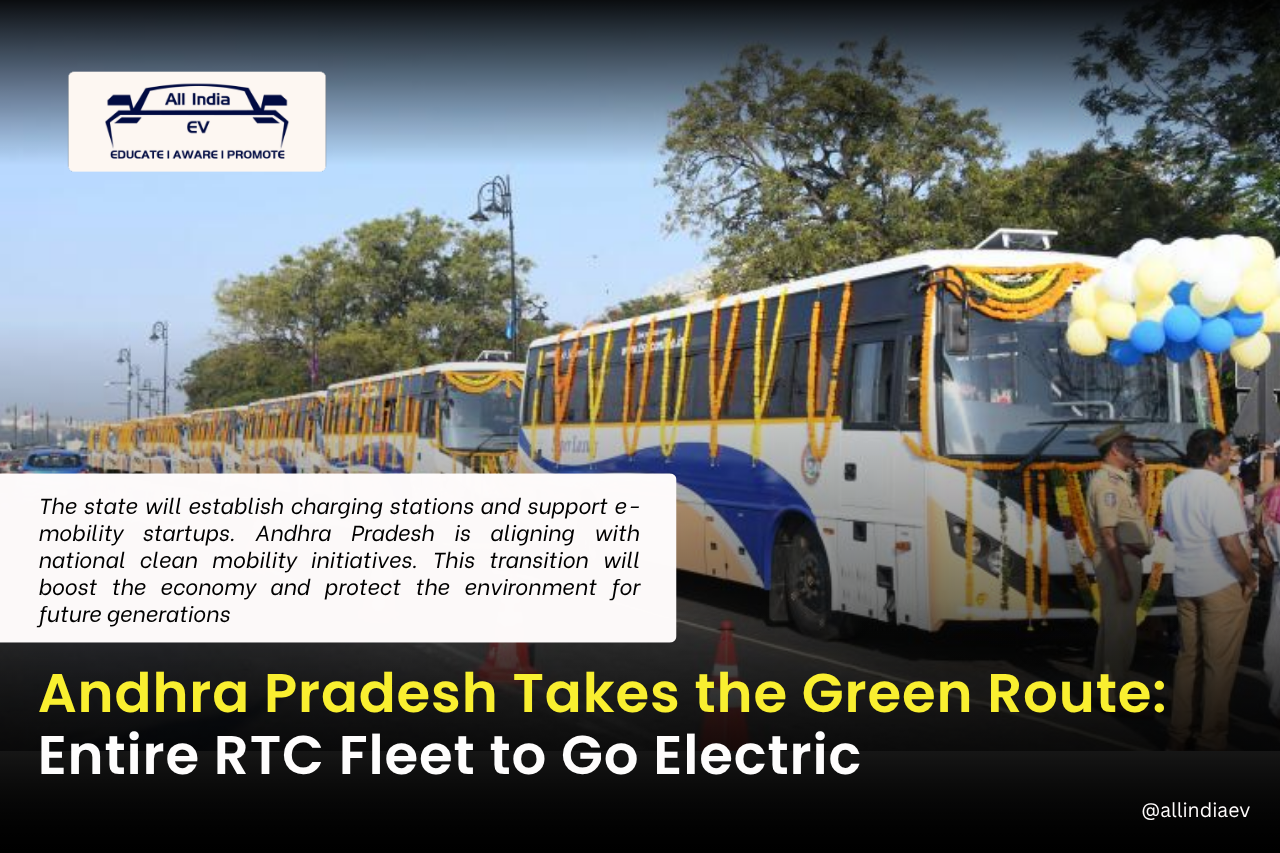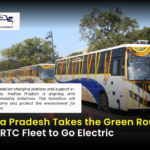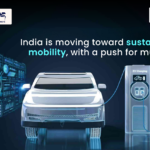
Andhra Pradesh to Build EV Charging Stations, Support E-Mobility Startups, and Align with National Clean Mobility Initiatives, Boosting Economy and Sustainability
In a major push toward clean and sustainable transportation, the Andhra Pradesh government has announced plans to transition the entire APSRTC bus fleet to electric vehicles (EVs). Chief Minister N Chandrababu Naidu has directed the transport department to prepare a comprehensive roadmap for the initiative under the state’s e-mobility policy, aiming to position Andhra Pradesh as a national leader in sustainable mobility.
The project seeks to reduce carbon emissions, improve energy efficiency, and contribute to the global fight against climate change, while safeguarding future generations’ interests. The state transport department and APSRTC, in coordination with New and Renewable Energy Development Corporation (NREDCAP) as the nodal agency, plan to install electric charging stations every 30 km on key routes. Additionally, over 100 incubation centres will be established to support innovation in e-mobility startups. The government has also allocated ₹500 crore to promote EV projects in urban areas.
To strengthen the local EV ecosystem, Andhra Pradesh intends to develop manufacturing facilities and create an integrated value chain for electric vehicles. The state plans to leverage the national PM E-Drive scheme, which carries ₹10,900 crore in funding, to accelerate adoption and infrastructure development.
The government has reaffirmed its support for the Union government’s clean mobility transition, emphasizing that sustainable transport can simultaneously boost economic growth and protect the environment. MT Krishna Babu, Special Chief Secretary (Transport, Roads, and Buildings), stressed the importance of engaging all stakeholders at both state and national levels to ensure the success of the initiative.
In recent discussions, A Chandra Sekhara Reddy, Adviser (Government Affairs & Media), EESL, and officers from the AP State Energy Conservation Mission met with Krishna Babu to strengthen collaboration. Krishna Babu commended CESL for deploying over 33,000 electric buses nationwide and urged the organisation to undertake capacity-building programmes to mobilize stakeholders toward pro-environmental actions, including hydrogen mobility initiatives.
Highlighting flagship schemes such as FAME India Phase II, the National Electric Bus Programme, and PM-eBus Sewa, Krishna Babu noted that these initiatives, with CESL as nodal agency, will have a far-reaching impact on economic growth and climate mitigation.
With this ambitious e-mobility roadmap, Andhra Pradesh is set to become a model state for India’s clean transportation revolution.










